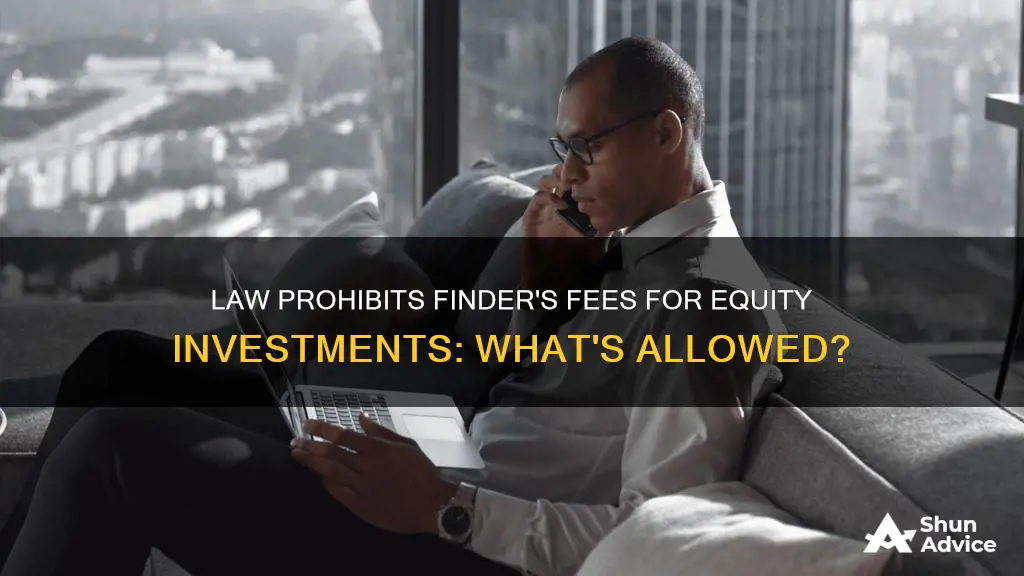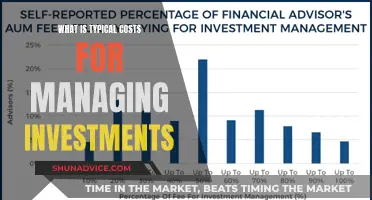
The Securities and Exchange Commission (SEC) has strict rules regarding the payment of referral fees to non-broker-dealers in securities transactions. These rules apply to all transactions involving securities, including financing, mergers, and acquisitions. According to the SEC, anyone who engages in broker-dealer activity must register with the SEC under Section 15(a) of the Securities Exchange Act of 1934. This includes individuals or entities that solicit investors, assist in structuring securities transactions, help identify potential investors, participate in deal negotiations, or handle investment funds or securities. The SEC takes an expansive view of what constitutes broker-dealer activity, and transaction-based compensation is a key indicator. Companies that use unregistered brokers to raise capital can face serious consequences, including government enforcement action and fines. To avoid these issues, it is important for companies to carefully consider the involvement of a finder or broker-dealer when raising capital and to ensure that they are in compliance with SEC regulations.
What You'll Learn

The difference between a 'finder' and a 'broker-dealer'
The difference between a finder and a broker-dealer is a highly nuanced and complex issue, with significant regulatory and legal implications. Understanding these distinctions is crucial for financial firms and individuals seeking to raise capital or engage in securities transactions. Here is an in-depth analysis of the differences between finders and broker-dealers:
Nature of Activities
The nature of activities undertaken is a key differentiator between finders and broker-dealers. A finder typically acts as an intermediary or agent, leveraging their network to connect issuers or companies with potential investors. Their role is often limited to making introductions and providing lists of potential investors. On the other hand, a broker-dealer engages in a broader range of activities, including soliciting investors, assisting in structuring securities transactions, participating in negotiations, and handling investment funds or securities. Broker-dealers take an active role in facilitating the entire securities transaction process.
Registration Requirements
Registration requirements with the Securities and Exchange Commission (SEC) and the Financial Industry Regulatory Authority (FINRA) are a significant point of differentiation. Broker-dealers are required to register with the SEC and FINRA, as per the Securities Exchange Act of 1934 ("Exchange Act"). This registration process ensures compliance with extensive regulations aimed at protecting investors and maintaining market integrity. In contrast, finders often claim exemption from registration requirements, arguing that they are not "engaged in the business of effecting transactions in securities" due to their limited role. However, the line between finder and broker-dealer activities can be blurry, and the SEC scrutinizes finder activities closely.
Compensation Structures
The nature of compensation is another critical distinction between finders and broker-dealers. Finders typically receive a fixed fee or "finder's fee" for each introduction, which is not tied to the success of the introductions or the ultimate investments made. In contrast, broker-dealers often receive transaction-based or success-based compensation, such as commissions, which are directly linked to the outcome of the securities transactions they facilitate. This type of compensation is a strong indicator of broker-dealer activity and can trigger registration requirements.
Regulatory Scrutiny
Regulatory scrutiny and compliance are also differentiating factors. Broker-dealers are subject to extensive regulation by federal and state agencies, including the SEC and FINRA. They must comply with various rules and guidelines to maintain their registration status. Finders, on the other hand, often operate in a grey market, with less regulatory clarity and oversight. This lack of clear regulations has led to concerns about unregistered brokerage activity and potential investor protection issues. The SEC has proposed exemptions and safe harbors for finders, but the requirements and limitations for these exemptions are stringent.
Potential Legal and Regulatory Risks
The consequences of non-compliance with registration requirements can be significant for both finders and broker-dealers. Operating as an unregistered broker-dealer, or engaging one, carries legal and regulatory risks. These include civil monetary penalties, injunctions, disgorgement of fees or profits, prohibition from working in the securities industry, and reputational damage. In some cases, criminal liability and investor remedies may also apply. It is crucial for individuals and entities to carefully analyze their activities and ensure compliance with applicable laws and regulations to mitigate these risks.
Point Home Equity Investment: Legit or a Scam?
You may want to see also

The definition of a 'dealer'
The definition of a "dealer" is easier to address than that of a "finder". According to Section 2(a)(12) of the Securities Act of 1933, a "dealer" is defined as any person who engages, either for all or part of their time, directly or indirectly, as an agent, broker, or principal, in the business of offering, buying, selling, or otherwise dealing or trading in securities issued by another person.
The definition excludes those buying or selling for their own accounts but includes those doing so as part of a regular business. The SEC is currently engaged in multiple lawsuits over the definition of "dealer", specifically concerning the "regular business" part of the definition.
A finder introduces investors to investments and is rarely in the business of offering, dealing, or trading in securities. However, if a finder is deemed to be acting as a dealer, they must register with the SEC.
Invest India: Adding Value with Innovation and Expertise
You may want to see also

The definition of a 'broker'
The Definition of a Broker
The definition of a "broker" is broad and fact-specific under US law. A broker is generally considered anyone who effects securities transactions, or who is engaged in the business of buying and selling securities, for the account of others. This can include individuals or entities that are involved in various activities related to securities transactions, such as facilitating introductions, You may want to see also Negotiation plays a pivotal role in determining registration requirements, which are rights entitling investors who own restricted stock to require a company to list their shares publicly so they can be sold. Registration rights can be assigned when a private company issues shares to raise money. However, they are typically negotiated when privately-held shares are purchased. When negotiating registration requirements, it is crucial to prioritize needs over wants. For instance, if financial stability and cash compensation are immediate priorities, they should take precedence over stock options in a company that might go public in the distant future. Obtaining legal assistance from an employment attorney is highly recommended to ensure a comprehensive understanding of the legal terms in the agreement. The negotiation process involves assessing one's leverage, considering the potential opportunity cost of leaving the current job, and evaluating the urgency of the company's hiring needs, the uniqueness of the skill set required, and one's qualifications for the position. It is also essential to understand the company's financial position, expected timeline to liquidity, and anticipated path, such as a merger, acquisition, or initial public offering (IPO). During the negotiation, it is important to carefully review the equity offer, including the type and number of shares, the strike or purchase price, and the current 409a valuation. This information will shape the negotiation strategy and goals. For instance, if the company is a startup with a longer runway, there may be an opportunity to exercise shares with minimal cash outlay, which can also aid in long-term tax planning. When negotiating registration requirements, it is advisable to seek better vesting terms, request accelerated vesting of stock upon a change in control, and consider negotiating severance upfront. Additionally, it is worth discussing extended time after separation from service to exercise stock options, as the standard time frame is relatively short. In summary, negotiation is essential in determining registration requirements, and it involves a thorough assessment of one's position, the company's situation, and the specifics of the equity offer. By prioritizing needs and seeking legal guidance, individuals can make informed decisions and optimize their financial outcomes. You may want to see also The more a finder's compensation is based on the funds raised, the more likely it is that they will be required to register as a broker-dealer. This is true regardless of the label applied to the payments, be it "finders fees", "referral fees", "consulting fees", or "success fees". Flat fees or hourly rates are less likely to trigger registration requirements, provided the finder's activities remain limited to introductions. The SEC has stated that a finder who receives transaction-based compensation and engages in other broker-like activities, such as soliciting investors, assisting in structuring transactions, helping identify potential investors, participating in deal negotiations, or handling investment funds or securities, will likely be required to register. The proposed Tier I and Tier II Finder exemptions from the SEC would allow for certain limited activities involving accredited investors without registration. Tier I Finders would be restricted to providing contact information for potential investors in a single transaction and would not be permitted to have any contact with those investors. Tier II Finders could solicit investors, distribute offering materials, discuss offering materials (without providing advice on the advisability of the investment), and arrange or participate in meetings with the issuer and investor. Both types of Finders would be permitted to accept transaction-based compensation. You may want to see also A finder is an unregistered person or entity that introduces investors to an issuer and seeks to obtain payment based on the investment made by the investor. Federal securities laws generally consider anyone who effects transactions in securities to be acting as a broker-dealer, requiring that person to go through the costly and extensive process of registering with the SEC and FINRA. Finders, on the other hand, are exempt from federal registration requirements and must limit themselves to making introductions between issuers and investors. According to the SEC, broker-dealer activity includes soliciting investors, assisting in structuring securities transactions, helping identify potential investors, participating in deal negotiations, and handling investment funds or securities. Companies who use an unregistered broker to help raise capital can face serious consequences, including government enforcement action, investor rescission of the deal, and fines or penalties for the individual acting as the broker.Reliance India: A Comprehensive Guide to Investing

The role of negotiation in determining registration requirements
Building an Investment Portfolio: A Beginner's Guide

The role of compensation in determining registration requirements
Investment Planning Manager: Role and Responsibilities Explained
Frequently asked questions







